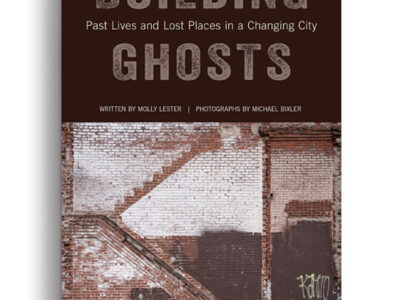
When Philadelphia had two major league baseball teams, there was no middle ground: either you rooted for the Phillies or the Athletics.
On Memorial Day 1943, eight-year old David Jordan L’59 became an A’s fan when his father took him to his first game, a doubleheader at Shibe Park between the A’s and the Detroit Tigers. Dr. John Rossi Gr’65 was 10 when he became a Phillies fan, after attending a contest between the Phillies and the Cincinnati Reds with his uncle in 1946. Had the two known each other then, they probably would have argued over which was the better club.
Jordan grew to like the Phillies while attending Penn Law School. (The A’s had departed for Kansas City.) After leaving Philadelphia for a master’s degree at Notre Dame, Rossi returned for his Ph.D. at Penn and began seeing his Phils again. Years later, the two men became neighbors in suburban Philadelphia, passing each other as they walked their dogs and occasionally talking about baseball. And they began writing about the sport in their spare time.
Jordan, an attorney, has written two baseball books, and Rossi, who teaches at La Salle University, has recently published his second work about the sport.
The two even collaborated on a project about legendary impresario Bill Veeck. Each man had written to the editor of the Society for American Baseball Research about Veeck’s claim that he would have bought and integrated the Phillies before Branch Rickey hired Jackie Robinson to play for the Dodgers. Both men thought the “story” was a product of Veeck’s imagination. At the editor’s suggestion they pooled their research with another writer and published the Veeck piece in SABR’s journal, The National Pastime. It enraged Veeck fans. Later, the trio received the organization’s top prize for the best baseball article of 1998.
On nights and weekends Jordan indulges in his “hobby” of writing. His first book, about Winfield Scott Hancock, a Union Army general and prominent 19th-century political figure, was a finalist for the Pulitzer Prize. His third, a biography of pitcher Hal Newhouser, was credited with getting the Tiger pitcher elected to the Baseball Hall of Fame.
Last year Jordan published The Athletics of Philadelphia: Connie Mack’s White Elephants, 1901-1954, while Rossi published his first baseball book, A Whole New Ballgame: Off the Field Changes 1946-60. Both books were nominated for SABR’s Seymour Prize as the best baseball book of 1999.
For his first book, Rossi chose to write about the period he knew best, when he became a fan and made it a habit to memorize the batting title champs, homerun-title leaders and 20-game winners. Later, he recognized that while some viewed that era as a golden age of baseball, it was actually a time of serious trouble and transition for the sport. Integration was the biggest change, of course, but franchise relocations, the emergence of football and other professional sports, and the major influence of television posed other challenges.
Jordan’s first baseball book originated from his first game in 1943, when he watched in awe as Hal Newhouser pitched a 2-hit shutout. Newhouser became Jordan’s idol, and he later felt it was unfair that the pitcher did not have a place in the Hall of Fame.
“I wrote to him and heard nothing back from him. I went to the library, got a Detroit phone book, and his number was in it. I called and he answered the phone. I told him who I was and that I wanted to write this book.”
Jordan went to Michigan to interview his idol. Then, as the tape was running out of Jordan’s recorder, he asked the pitcher how he felt about not being in the Hall. “‘He said, ‘Well, I’m not bitter about it,’ and then this torrent of words poured out which made it extremely clear that he was unhappy about it—none of which I got on the tape.”
After A Tiger in his Time: Hal Newhouser and the Burden of Wartime Ball was published, Jordan sent him a copy “and I got a letter back from him—he was overwhelmed. He said it was a wonderful book. The next year the veterans committee voted him in.”
For his next project, Jordan is working on a history of the Phillies. This spring Rossi published The National Game: Baseball and American Culture. “Part of my argument,” he says, “is to try to show how instrumental baseball was to the development of American society.”
—Jon Caroulis




